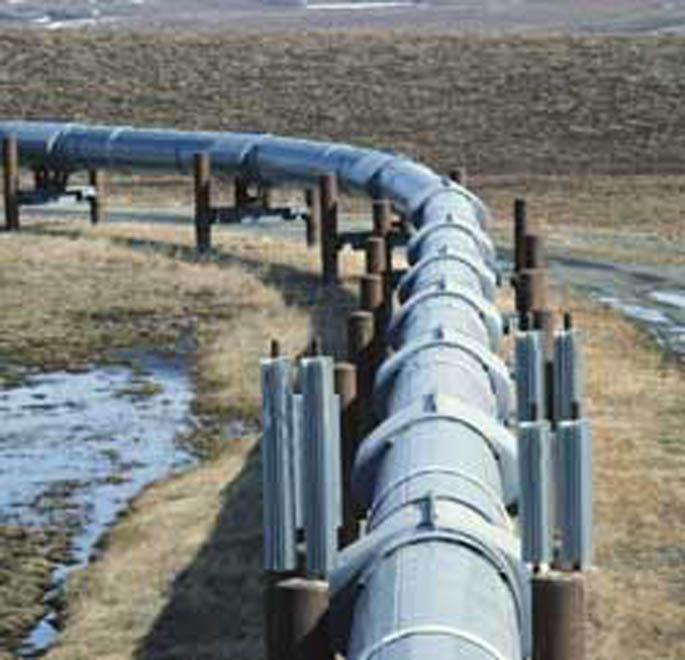Baku, Azerbaijan, Nov. 1 /Trend/
Azer Ahmedbeyli, expert of Trend's analytical center
Construction of the TAPI pipeline (Turkmenistan-Afghanistan-Pakistan-India) remains perhaps the most problematic of all projects on the delivery of hydrocarbons from the Caspian region and Central Asia to international markets. Problematic is that the statements made and full of optimism on the one hand, and the events in the region, where the pipeline will run on the other hand are clearly discordant with each other. Optimistic statements are made by mostly Turkmen and Indian parties, and the events casting doubt on the project implementation take place in Afghanistan and Pakistan.
The President of the Republic of India Pratibha Devising Patil has sent a letter to the Turkmen counterpart Gurbanguly Berdimuhammadov in which she expressed the hope for realization of the pipeline project Turkmenistan-Afghanistan-Pakistan-India (TAPI).
"I want to express my joy for the successful promotion of the TAPI project and hope that this project will be implemented through joint efforts," says the message timed to coincide with the celebration of Turkmenistan the 20th anniversary of independence recently.
According to Turkmen media, currently, the key issue in the TAPI negotiations is the question of preparation of the contract of purchase and sale of Turkmen gas. At this stage, the parties involved in the project will also agree on the security of transit and settle the issue of funding.
The idea of the project is very attractive. Ministry of Oil and Gas Industry last year conducted a survey of gas markets of India and Pakistan. The review indicates that over the next ten years, the total demand for natural gas markets of India and Pakistan may grow, possibly to 186 billion cubic meters. At the same time, both states will be able to produce total of only 100 billion cubic meters during this period.
"This means that in ten years, to fill their needs, they will have to import 90 billion cubic meters of natural gas," according to a review of Turkmen specialists. The forecasts of the international energy agencies indicate about the same figure. Of course, Turkmenistan, with its huge reserves of natural gas, would get an access to the fast-growing energy markets in these countries.
Meanwhile, the construction of another pipeline - Iran-Pakistan, which, if realized, could bury the idea of the TAPI project, continues. If Pakistan receives sufficient quantities of Iranian gas and the pipeline capacity is 22 billion cubic meters with the possibility of being increased to 55 billion, the stimulus for participation in the TAPI project will disappear, and Pakistan can just get out of it.
Islamabad's Ambassador to Tehran Khalid Aziz Babar underlined on last Saturday that the multi-billion-dollar pipeline project which is due to bring Iran's rich gas reserves to the energy-hungry Pakistan will start operation in 2014, Fars News Agency reported. "The project is moving forward and both sides are after its accomplishment. The pipeline will be completed in December 2014," the envoy underscored.
The agency also reported the presence of the parties' long-term contract to export Iranian gas to the neighboring country. Earlier, in October, the director of the National Iranian Gas Company reported that out of 960 km that makes up the total length of the route, 800 has been built, while the remaining 160 km will be laid next year, apparently referring to the beginning of the Iranian new year.
Meanwhile, the situation in Afghanistan - a country via which almost half of the TAPI pipeline must pass, leaves much to desire the best. Last Saturday the attack on a convoy of NATO in the Afghan capital killed 17 people, including 12 Americans - military and civilians. The act of terror was named one of the worst in the history of the ten-year stay of the Americans in Afghanistan. Taliban movement assumed the responsibility. The act of terror occurred on the same day when the NATO leadership in Afghanistan and Afghan officials were discussing in Kabul the issue of transfer of authority to Afghan armed forces to ensure security in 17 out of 34 provinces. It is clear that in such circumstances when it is difficult to control the situation even in the Afghan capital, there can be no discussion on the construction.
Penspen has developed a feasibility study on the project. Its design capacity is 33 billion cubic meters of gas a year. The length of TAPI could reach 1,680 kilometers, with a design capacity of 30 billion cubic meters of natural gas per year. The route is planned from the Turkmen Dovletabat fields through Herat and Kandahar (Afghanistan), via the districts of Quetta (Pakistan), to Fazlaka on the India-Pakistan border.






